My guest today is Alex Pearl, an author living in North West London. One of his many claims to fame is that he was inadvertently locked in a record shop on Christmas Eve!
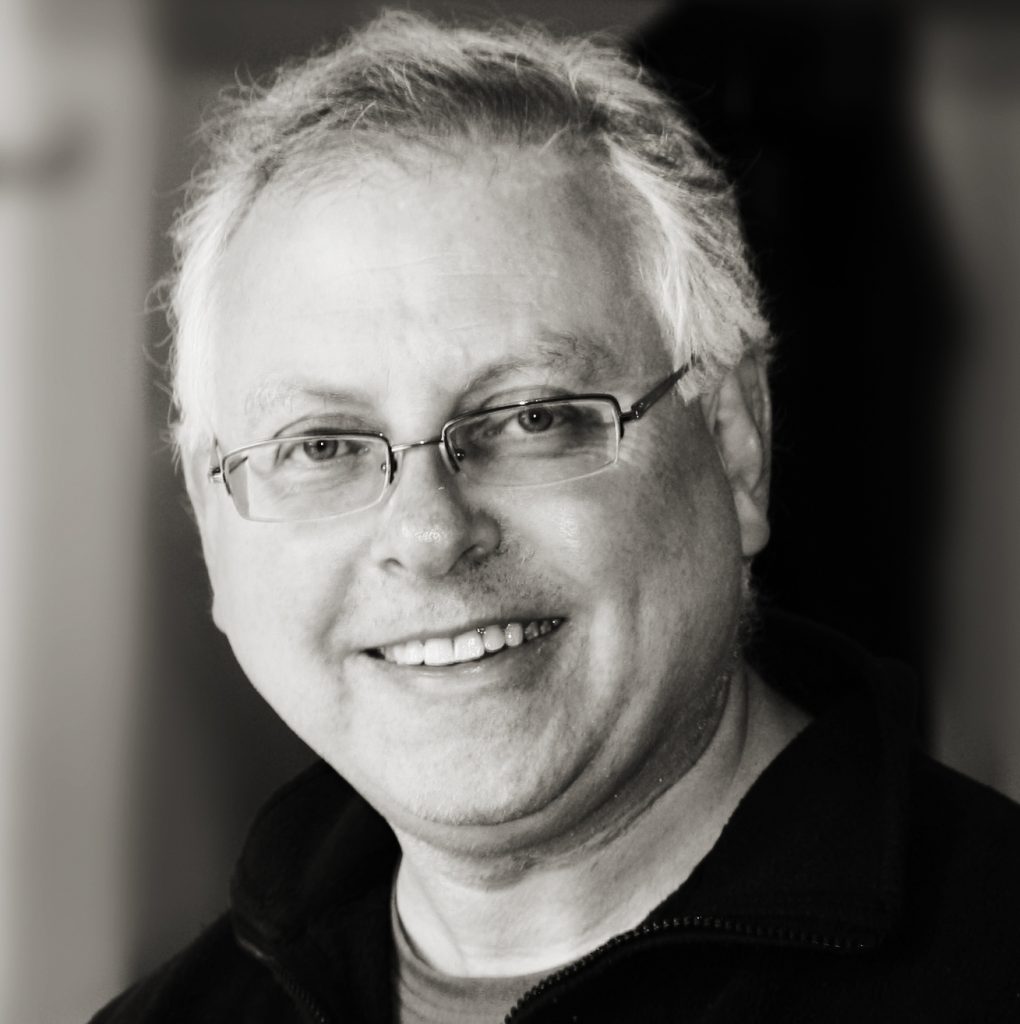
Alex’s first novel was published in 2011 and is called “Sleeping with the Blackbirds”, a darkly humorous urban fantasy, written for children and young adults. This was followed in 2019 by his psychological thriller, “The Chair Man”, a book set in London in 2005 following a terrorist attack on the public transport system. Alex has also written a fictional account about the First World War which is included in the anthology, “The Clock Struck War”, and a selection of his blog posts can be found in a paperback entitled “Random Ramblings of a Short-sighted Blogger”.
Alex’s most recent work, with a few other authors, is “Lockdown Scribblings”, a collection of light verses composed during the lockdown periods in the UK. It is designed to lighten the reader’s mood without making light of the pandemic.
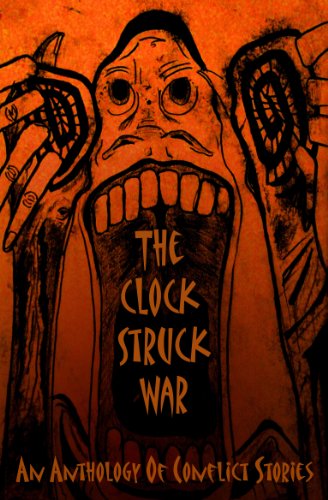
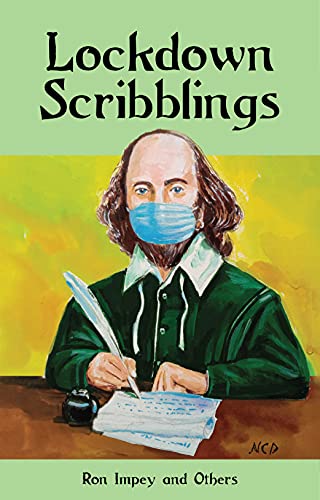
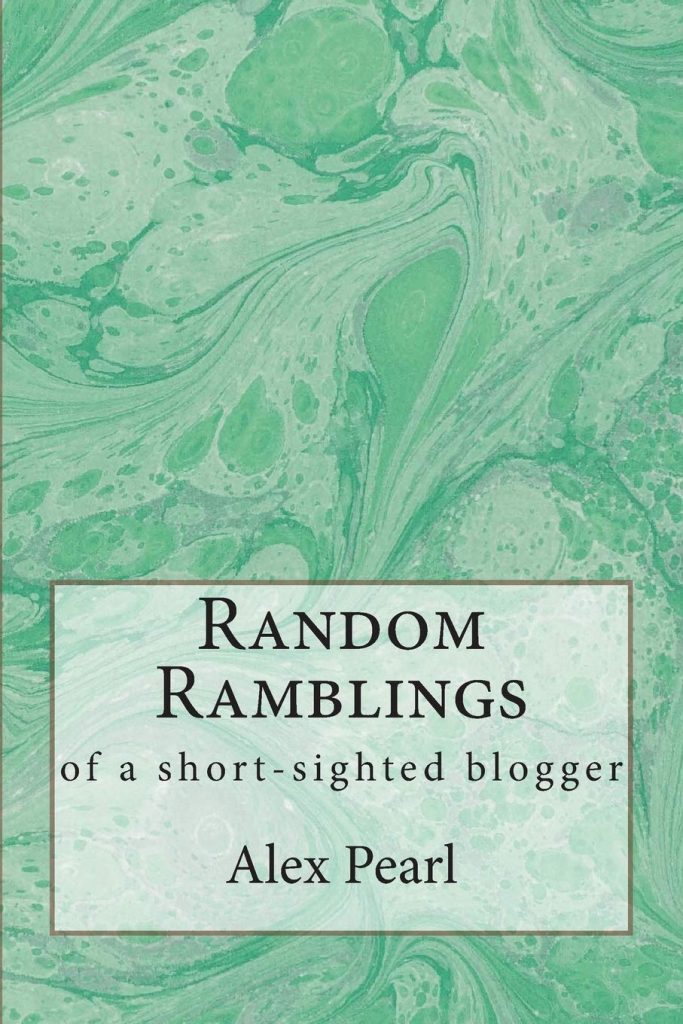
Good morning, Alex. I thought we might start by learning a bit more about you. Perhaps you could tell me a bit about yourself.
I am an extremely short-sighted and slightly shambolic bloke, with a bad sense of direction living somewhere in NW London close to the Hampstead Heath extension with my wife. Both our kids have now flown the nest. I was brought up in Ilford, a large suburban conurbation on the outskirts of East London. I wasn’t particularly academic at school, but was quite good at art and English. So, I ended up going to art college in Maidstone, and together with a good friend, became interested in creative advertising. We put together a folio of work and were hired by a creative agency called Kirkwoods back in 1980. By this time, I had decided to become a copywriter, and my partner, who was a far better artist, would take on the mantle of art director. Our working partnership would span a quarter of a century working for several different agencies. I started writing fiction when my other half retired from the industry in around 2007 and it was in 2011 that my first book ‘Sleeping with the Blackbirds’ was published.
What is your earliest memory and how old were you at the time?
One of my earliest childhood memories is of my first day at primary school. For some unfathomable reason the experience remains indelibly ingrained in my memory. I can still recall waiting with my mother to be introduced to my teacher and then being shown around the school with its glazed brown wall tiles, faded parquet floors and distinct smell of disinfectant, and eventually bursting into tears on being shown the gymnasium. I’m not entirely clear what triggered those tears, but I suppose it must have had something to do with an aversion to any form of physical exercise; a trait that, for good or ill, has remained with me to this day.
I suppose it must have been shortly after this traumatic school episode that I was taken by my mother during a particularly wet and miserable afternoon to the local cinema – The ABC in Ilford High Road. My mother used to love the cinema, and this would have been the first of many such visits. The film being screened was ‘The Wizard of Oz’ starring a very young Judy Garland. It seems odd now to think that back then, seeing old movies screened on the High Street would have been par for the course. (Today old classics are only ever screened in art house cinemas.)
On taking our seats and being treated to the wonderful opening scenes of the storm, something really quite extraordinary happened: the real heavens opened and torrential rain hammered down with such force that within minutes, and just as the little wooden cabin on the big screen was being uprooted by the storm and tossed in the air, it began to rain quite literally through the light fittings in the ceiling. As a young boy of five years of age, it must have seemed all rather marvellous, until, of course, this indoor rain caused those sitting beneath it to put up their umbrellas and obscure my view. This surreal state of affairs was not to last for long. The film ground to a halt and the lights came on. (In retrospect, I don’t know how the lights didn’t fuse with all that rainwater cascading through their housings.) The dishevelled manager of this rundown flea pit eventually appeared from nowhere, and like a startled hare caught in the headlights of an oncoming car, made some kind of half-hearted apology to the audience and asked us in no uncertain terms to leave the auditorium and collect a refund from front of house.
As it happens, I have never got round to seeing ‘The Wizard of Oz’, even though both of my children have. But from that inauspicious introduction to the cinema, the bug for sitting in the pitch dark and being mesmerised by moving images, had taken hold.
What was your favourite subject at school – and which was the lesson you always wanted to avoid?
My favourite subject was English language when studying for O levels – and that was down to a particularly brilliant teacher and my love of creative writing. But for some curious reason, the idea of studying English Literature for A level and devouring Shakespeare and the classics terrified me. Undoubtedly my first big mistake in life.
The subject I loathed and could never get on with was maths. And I can put this down to my primary school experience. At the age of five or six, one particularly stern teacher, a Miss Prudence, who wore horn-rimmed spectacles, would pose mathematical questions on a blackboard and pick out children from the classroom to step up to the blackboard and solve the problem in front of the rest of the class. If, like me, you had a blind spot for maths, you were quite simply made to feel stupid. As a result, I would spend most lessons hiding behind my desk for fear of being picked on by this sadistic spinster. And I’m convinced that Miss Prudence was the sole reason why maths to this day has remained something of a mystery to me.
Oh dear, she clearly has a lot to answer for.
What do you enjoy most about writing?
That’s an interesting question. I suppose it’s the thrill of creating characters and worlds from your imagination and having control over this world that really appeals to me. Storytelling is something that’s hardwired into all of us. We all love doing it at one level or other and I guess it can be a cathartic exercise for many of us. I enjoy the writing far more than the planning, which for me is by far the most challenging aspect of the endeavour.
Do you like reading the same type of books that you write?
I’ve only written two books and a short story. The two books are in the children’s and thriller genres. My children’s book ‘Sleeping with the Blackbirds’ is almost certainly influenced by writers I read and enjoyed as a child. People like Clive King and Richmal Crompton. Strangely enough, I haven’t read so many thrillers. But I certainly like and admire the work of Frederick Forsyth and John Grisham. I tend to read literary and historical fiction.
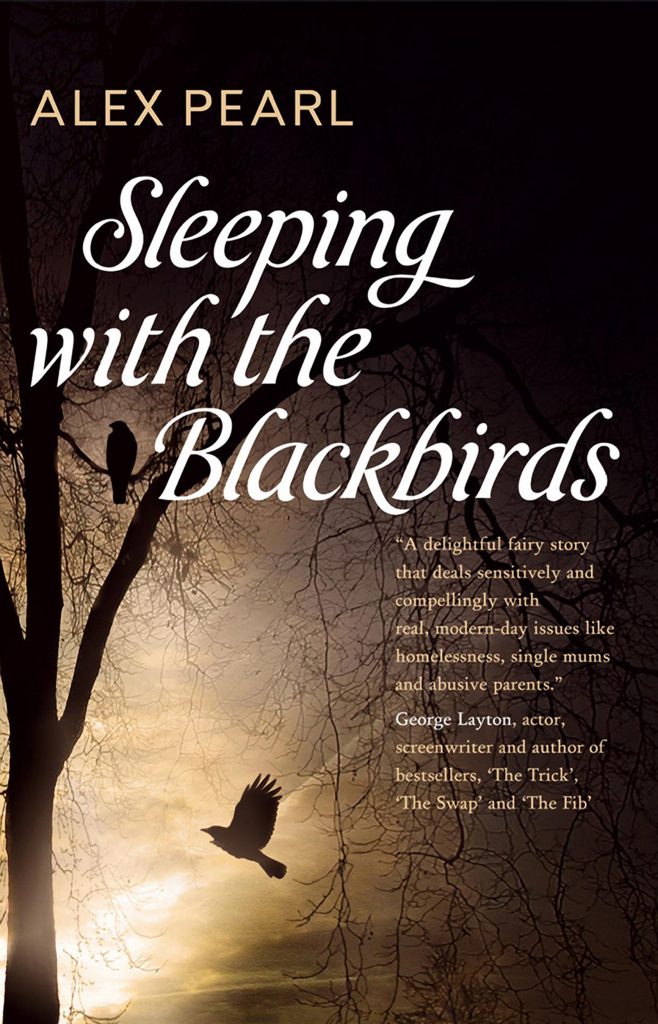
What do you think are common traps for aspiring writers?
I imagine a common trap is consciously trying to emulate another writer, but to some extent we all do this subconsciously. And another thing the novice writer will probably do is overwrite. And by this I mean cramming sentences with adjectives and over-flowery descriptive passages. It’s an easy trap to fall into. But a great lesson for every budding writer is to grab a copy of ‘Animal Farm’ by George Orwell. It’s a beautiful lesson in the beauty of brevity. Orwell’s sentences are carefully honed. There are no superfluous words. And yet the prose flows smoothly, effortlessly and eloquently.
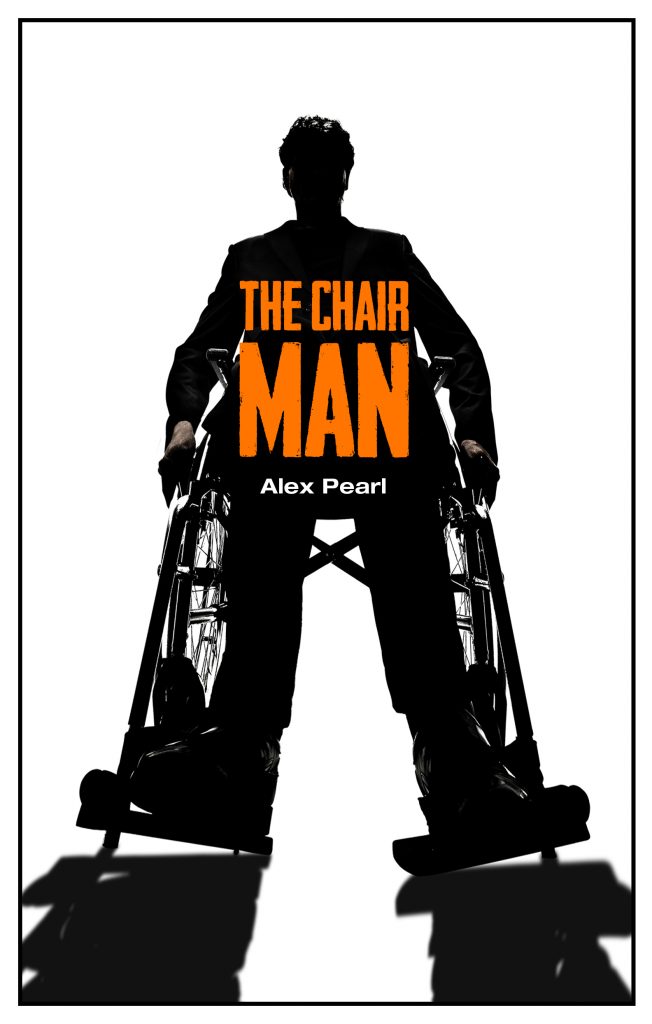
Of the books that you have written, which is your favourite? Tell me about it.
Of the two, I don’t have a favourite. They are both completely different in style and content. But since ‘The Chair Man’ is my last book, I’ll give you an overview:
Michael Hollinghurst is a successful corporate lawyer living a comfortable, suburban life in leafy North West London. But on 7 July 2005, his life is transformed when he steps on a London underground train targeted by Islamist suicide bombers. While most passengers in his carriage are killed, Michael survives the explosion but is confined to a wheelchair as a result. Coming to terms with his predicament, and controlling his own feelings of guilt as a survivor, conspire to push him in a direction that is out of character and a tad reckless.
In a quest to seek retribution, he resorts to embracing the internet and posing as a radical Islamist in order to snare potential perpetrators. Much to his surprise, his shambolic scheme yields results and is brought to the attention of both GCHQ and a terrorist cell. Before long, dark forces begin to gather and close in on him. There is seemingly no way out for Michael Hollinghurst. He has become, quite literally, a sitting target.
How do you market your books?
I’m no expert at this. And I’m not brilliant at marketing my own work, which is ironic seeing that my background is in marketing. I have used the Fussy Librarian a few times to promote my books when they are free, and they’ve been quite good. On one occasion they shifted 800 copies of ‘The Chair Man’ in one day, which put it at number 1 in the Kindle thriller charts for a day.
Wow, that is impressive!
How do you relax?
I watch movies. Pre-Covid, my wife and I used to frequently visit our local independent cinema, The Phoenix, which is, incidentally, one of the UK’s oldest continuously-running independent cinemas. It was opened in 1912 and its first movie was a newsreel of the Titanic sinking. I read, of course. I listen to music, primarily classical and jazz. And I do a fair bit of gardening and cooking.
Who were your biggest influences when growing up?
My biggest influences were through school and later on, at work. I had a wonderful English teacher by the name of Clive Lawton who was simply inspirational. He was radical in his approach to teaching in our large comprehensive school in Camden Town. He would turn everything on its head. For instance, he’d tell us that our syllabus was boring and that we were going to scrap it and do something far more interesting. He’d engage us in class debates on contentious issues and get us into storytelling. He’d instill into every child in that classroom a love of words and the power of words. He was totally unconventional but a quite brilliant teacher. Not surprisingly, he would make a name for himself in education and was eventually awarded an OBE.
Then, once I’d gained employment as a copywriter, I would encounter influential people. One such person was my Creative Director in the mid-80s, Ken Mullen. Ken is a brilliant writer with a wonderful sense of humour. With his academic background (two degrees from Oxford University) he might have cut a daunting figure. But he wasn’t at all. Instead, he was a fantastically encouraging, supportive and nurturing boss to have around. And he was a great fun. On one occasion he and his art director created a press campaign for real fires for the Solid Fuel Advisory Service. This involved commissioning novelists to wax lyrical about their own real fires at home. Among the authors commissioned was the fabulous Beryl Bainbridge whose piece won a prestigious D&AD Silver award for the best piece of copy written for a press advertisement that year. I was fortunate enough to sit next to her at the awards dinner, and looking back, I think it was pretty inspirational to sit and chat with this very lovely, down-to-earth lady who also happened to be one of the greatest living novelists in the country.
Do you remember your first book?
Yes. It was ‘Stig of the Dump’ by Clive King. I re-read it recently, and I have to say that it’s a beautiful book written from the point of view of a young boy who discovers a caveman (boy) at the bottom of his grandparent’s garden. It’s a touching story all about human relationships and trust, and it made a huge impact on me at the time.
That brings back a few memories because I think my own sons read the same book.
Well, thank you, Alex, I’ve enjoyed talking to you. I wish you every success with your books and, of course, any future ones.
Readers, you can find Alex on the following links:
AMAZON PAGE
https://www.amazon.co.uk/Alex-Pearl/e/B00AR0T3QA%3Fref=dbs_a_mng_rwt_scns_share
| Follow Alex Pearl and explore his bibliography from Amazon.com’s Alex Pearl Author Page. |
WEBSITE
Welcome to the site dedicated to books by Alex Pearlbooksbyalexpearl.weebly.com
This website conveys information about books written by Alex Pearl. This includes reviews of his books, interviews, trailers and readings. It also carries book reviews of books by other authors and interviews with other authors.
GOODREADS PAGE
0 Comments